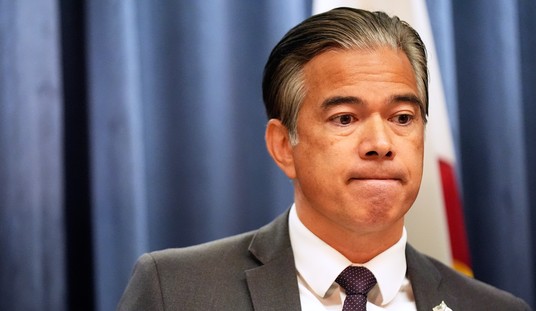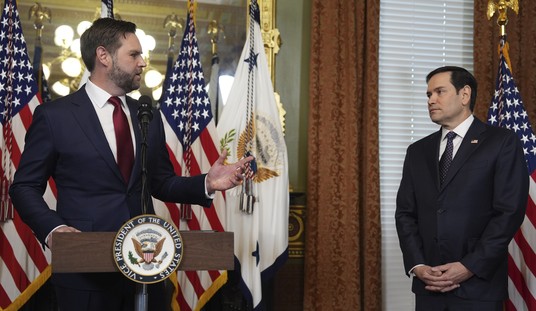Is it really “news” that he’s saying this? I’m going to argue yes, but purely for what it signals about the state of the race.
Hours after he secured the endorsement of former Florida Gov. Jeb Bush, Mitt Romney credited his brother, President George W. Bush, with keeping the country from a great depression in 2008.
“I keep hearing the president say he’s responsible for keeping the country out of a Great Depression,” Romney said at a town hall in Arbutus, Maryland. “No, no, no, that was President George W. Bush and [then-Treasury Secretary] Hank Paulson.”
He’s been making that point for ages. It’s even in his book. From Time’s piece on Romney’s “No Apology” back in March 2010:
The Harvard MBA and venture capitalist is sharper when it comes to the economy, a topic squarely in his wheelhouse. The best way for government to stimulate the economy, he argues, is to promote a favorable climate for innovation and then get out of its way. But he’s not an absolutist when it comes to government meddling in the markets. Though he denounces the bailout of Detroit carmakers, Romney is a backer of TARP, though he couches his position with a caveat that protects his right flank. “Secretary Paulson’s TARP prevented a systemic collapse of the national financial system,” he writes. “Secretary Geithner’s TARP became an opaque, heavy-handed, expensive slush fund. It should be shut down.”
The DNC accused him of flip-flopping on TARP late last year and PolitiFact, after researching, gave him a clean bill of health — a bit of consistency worth noting on Etch-a-Sketch Day in the blogosphere. If you don’t believe them, believe your own eyes. Embedded below you’ll find Romney defending TARP at a GOP candidate roundtable in October. He praises Bush and Paulson at around 1:15. His position on this has, as far as I can tell, always been that (a) TARP was imperfectly designed, (b) it should have been ended long ago after it became a slush fund, (c) he doesn’t support bailing out any individual bank simply because its managers made dumb decisions, but (d) in the extraordinary scenario where you’re looking at a systemic collapse of the entire financial system, with one bank dragging down another and then another in a catastrophic domino effect, then you have to act. I’ve always been sympathetic to that argument even though it makes conservatives bristle and amounts to rank heresy among libertarians, so perhaps my view of what he said today is skewed but I don’t see what the big deal here is. He was on record about TARP over and over again before the first votes were cast in Iowa and he’s got the nomination all but cinched three months later. Obviously it’s not disqualifying for most Republicans.
What is a big deal, though, is that he feels safe running through this again even though it’s Etch-a-Sketch Day. Clearly he thinks he’s in a strong enough position electorally that he doesn’t have to worry about hitting the occasional conservative nerve with his rhetoric, even at a moment when grassroots righties are perked up about him lurching towards the center in the general. (This is also a pat on the back for the Bush family on the day he finally landed Jeb’s endorsement, of course.) More significantly, this might be his way of starting to pivot from a “the economy’s a hopeless disaster under Obama” message to a more daring “yeah, okay, the economy’s starting to come back — thanks to Bush” message. If so, that seems exceedingly unwise; I’ve written many times about polls showing that voters continue to blame Bush, not The One, for the recession. Just last month, a Quinnipiac survey indicated that 51 percent still blame Bush for the current condition of the economy compared to just 35 percent who blame O. Dubya’s numbers have barely budged on that in more than two years. Sustained Republican messaging will move the needle a bit but if we’re banking on spinning away a recovery by rehabilitating George W. Bush(!) and TARP(!!), we’re in for a long election night, my friends.








Join the conversation as a VIP Member